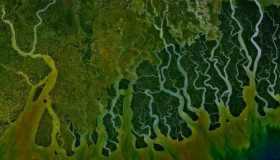
by Alex Randall | Aug 13, 2014 | Climate Change, Climate Conflict, Climate Displacement, Climate Migration
Get our round up in your inbox. Sign up on the front page. What really happened in New Zealand? This week lots of news outlets claimed that New Zealand created the first “climate change refugees” by granting refugee status status to a family from Tuvalu. This is not...

by Alex Randall | Aug 8, 2014 | Climate Change, Climate Displacement, Climate Migration, Sea level rise
Alex Randall Alex is programme manager at the Climate and Migration Coalition Q an A on Zew Zealand’s Climate Refugee court case. New Zealand did not just grant asylum to the first “climate refugees”. The family were granted residence in New Zealand on...

by Alex Randall | Aug 6, 2014 | Climate Change, Climate Conflict, Climate Displacement, Climate Migration
Get our round up in your inbox. Sign up on the front page. Tuvalu climate change family win NZ residency appeal “A Tuvalu family has been granted New Zealand residency after claiming it would be affected by climate change if it returned home. It is the first...

by Alex Randall | Jun 12, 2014 | Climate Change, Climate Displacement, Climate Migration
We have worked with the Heinrich Boell Foundation to investigate how the European Union can respond to migration linked to climate change. Our new report argues that we could avoid the distress and deaths of people en route to Europe by creating new, legal migration...

by Alex Randall | Jun 6, 2014 | Climate Change, Climate Displacement, Climate Migration
This article was originally published on Responding to Climate Change New Zealand just refused asylum to Ioana Teitiota. He claimed that climate change had made returning to Kiribati impossible. Globally, disasters have affected millions of people. Many will want to...

by Alex Randall | Apr 28, 2014 | Climate Change, Climate Displacement, Climate Migration
Imagine the scenario: A natural disaster strikes and displaces thousands of people. Most flee immediately and move a short distance to the nearest safe place. Some people need to, or can, flee the disaster by crossing an international border. Some people may be near...








